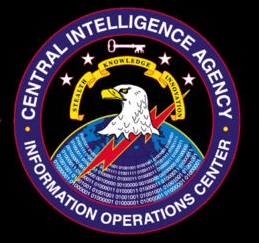Related Research Articles

Cybercrime encompasses a wide range of criminal activities that are carried out using digital devices and/or networks. These crimes involve the use of technology to commit fraud, identity theft, data breaches, computer viruses, scams, and expanded upon in other malicious acts. Cybercriminals exploit vulnerabilities in computer systems and networks to gain unauthorized access, steal sensitive information, disrupt services, and cause financial or reputational harm to individuals, organizations, and governments.
The United States Computer Emergency Readiness Team (US-CERT) was a team under the Cybersecurity and Infrastructure Security Agency of the Department of Homeland Security.
The EINSTEIN System is a network intrusion detection and prevention system that monitors the networks of US federal government departments and agencies. The system is developed and managed by the Cybersecurity and Infrastructure Security Agency in the United States Department of Homeland Security (DHS).
A supply chain attack is a cyber-attack that seeks to damage an organization by targeting less secure elements in the supply chain. A supply chain attack can occur in any industry, from the financial sector, oil industry, to a government sector. A supply chain attack can happen in software or hardware. Cybercriminals typically tamper with the manufacturing or distribution of a product by installing malware or hardware-based spying components. Symantec's 2019 Internet Security Threat Report states that supply chain attacks increased by 78 percent in 2018.
Cyberwarfare by Russia includes denial of service attacks, hacker attacks, dissemination of disinformation and propaganda, participation of state-sponsored teams in political blogs, internet surveillance using SORM technology, persecution of cyber-dissidents and other active measures. According to investigative journalist Andrei Soldatov, some of these activities were coordinated by the Russian signals intelligence, which was part of the FSB and formerly a part of the 16th KGB department. An analysis by the Defense Intelligence Agency in 2017 outlines Russia's view of "Information Countermeasures" or IPb as "strategically decisive and critically important to control its domestic populace and influence adversary states", dividing 'Information Countermeasures' into two categories of "Informational-Technical" and "Informational-Psychological" groups. The former encompasses network operations relating to defense, attack, and exploitation and the latter to "attempts to change people's behavior or beliefs in favor of Russian governmental objectives."

Palo Alto Networks, Inc. is an American multinational cybersecurity company with headquarters in Santa Clara, California. The core product is a platform that includes advanced firewalls and cloud-based offerings that extend those firewalls to cover other aspects of security. The company serves over 70,000 organizations in over 150 countries, including 85 of the Fortune 100. It is home to the Unit 42 threat research team and hosts the Ignite cybersecurity conference. It is a partner organization of the World Economic Forum.
Turla or Uroboros is a Trojan package that is suspected by computer security researchers and Western intelligence officers to be the product of a Russian government agency of the same name.
Cyberwarfare is a part of the Iranian government's "soft war" military strategy. Being both a victim and wager of cyberwarfare, Iran is considered an emerging military power in the field. Since November 2010, an organization called "The Cyber Defense Command" has been operating in Iran under the supervision of the country's "Passive Civil Defense Organization" which is itself a subdivision of the Joint Staff of Iranian Armed Forces.
Cozy Bear is a Russian advanced persistent threat hacker group believed to be associated with Russian foreign intelligence by United States intelligence agencies and those of allied countries. Dutch signals intelligence (AIVD) and American intelligence had been monitoring the group since 2014 and was able to link the hacker group to the Russian foreign intelligence agency (SVR) after compromising security cameras in their office. CrowdStrike and Estonian intelligence reported a tentative link to the Russian domestic/foreign intelligence agency (FSB). Various groups designate it CozyCar, CozyDuke, Dark Halo, The Dukes, Midnight Blizzard, NOBELIUM, Office Monkeys, StellarParticle, UNC2452 with a tentative connection to Russian hacker group YTTRIUM. Symantec reported that Cozy Bear had been compromising diplomatic organizations and national governments since at least 2010. Der Spiegel published documents in 2023 purporting to link Russian IT firm NTC Vulkan to Cozy Bear operations.
The Lazarus Group is a hacker group made up of an unknown number of individuals, alleged to be run by the government of North Korea. While not much is known about the group, researchers have attributed many cyberattacks to them since 2010.

Vault 7 is a series of documents that WikiLeaks began to publish on 7 March 2017, detailing the activities and capabilities of the United States Central Intelligence Agency (CIA) to perform electronic surveillance and cyber warfare. The files, dating from 2013 to 2016, include details on the agency's software capabilities, such as the ability to compromise cars, smart TVs, web browsers including Google Chrome, Microsoft Edge, Mozilla Firefox, and Opera, the operating systems of most smartphones including Apple's iOS and Google's Android, and computer operating systems including Microsoft Windows, macOS, and Linux. A CIA internal audit identified 91 malware tools out of more than 500 tools in use in 2016 being compromised by the release. The tools were developed by the Operations Support Branch of the CIA.

The Cybersecurity and Infrastructure Security Agency (CISA) is a component of the United States Department of Homeland Security (DHS) responsible for cybersecurity and infrastructure protection across all levels of government, coordinating cybersecurity programs with U.S. states, and improving the government's cybersecurity protections against private and nation-state hackers. Cybersecurity is now considered as important part of individuals and families, as well as organizations, governments, educational institutions and our business. It is essential for families and parents to protect the children and family members from online fraud. The term cyber attack covers a wide variety of actions ranging from simple probes, to defacing websites, to denial of service, to espionage and destruction.
Internet security awareness or Cyber security awareness refers to how much end-users know about the cyber security threats their networks face, the risks they introduce and mitigating security best practices to guide their behavior. End users are considered the weakest link and the primary vulnerability within a network. Since end-users are a major vulnerability, technical means to improve security are not enough. Organizations could also seek to reduce the risk of the human element. This could be accomplished by providing security best practice guidance for end users' awareness of cyber security. Employees could be taught about common threats and how to avoid or mitigate them.

Cyberwarfare is a component of the confrontation between Russia and Ukraine since the Revolution of Dignity in 2013-2014. While the first attacks on information systems of private enterprises and state institutions of Ukraine were recorded during mass protests in 2013, Russian cyberweapon Uroburos had been around since 2005. Russian cyberwarfare continued with the 2015 Ukraine power grid hack at Christmas 2015 and again in 2016, paralysis of the State Treasury of Ukraine in December 2016, a Mass hacker supply-chain attack in June 2017 and attacks on Ukrainian government websites in January 2022.

Sandworm is an advanced persistent threat operated by Military Unit 74455, a cyberwarfare unit of the GRU, Russia's military intelligence service. Other names for the group, given by cybersecurity researchers, include APT44, Telebots, Voodoo Bear, IRIDIUM, Seashell Blizzard, and Iron Viking.

In 2020, a major cyberattack suspected to have been committed by a group backed by the Russian government penetrated thousands of organizations globally including multiple parts of the United States federal government, leading to a series of data breaches. The cyberattack and data breach were reported to be among the worst cyber-espionage incidents ever suffered by the U.S., due to the sensitivity and high profile of the targets and the long duration in which the hackers had access. Within days of its discovery, at least 200 organizations around the world had been reported to be affected by the attack, and some of these may also have suffered data breaches. Affected organizations worldwide included NATO, the U.K. government, the European Parliament, Microsoft and others.
The Cyber Safety Review Board was established by United States Secretary of Homeland Security Alejandro Mayorkas on February 3, 2022. Modeled after the National Transportation Safety Board, the Board reviews significant cybersecurity incidents and issues reports. President Joe Biden directed the Board's creation through Section 5 of Executive Order 14028, issued on May 12, 2021.
National Initiative for Cybersecurity Careers and Studies (NICCS) is an online training initiative and portal built as per the National Initiative for Cybersecurity Education framework. This is a federal cybersecurity training subcomponent, operated and maintained by Cybersecurity and Infrastructure Security Agency.
Royal is a cybercriminal ransomware organization known for its aggressive targeting, its high ransom demands, and its use of double extortion. Royal does not use affiliates.
BlackCat, also known as ALPHV and Noberus, is a ransomware family written in Rust. It made its first appearance in November 2021. By extension, it is also the name of the threat actor(s) who exploit it.
References
- ↑ "Hunting Russian Intelligence "Snake" Malware | CISA". www.cisa.gov. 2023-05-09. Retrieved 2024-03-09.
- ↑ "The Epic Turla (snake/Uroburos) attacks". www.kaspersky.com. 2023-04-19. Retrieved 2024-03-09.
- ↑ Skulmoski, Greg (2023-05-11). "It's being called Russia's most sophisticated cyber espionage tool. What is Snake, and why is it so dangerous?". The Conversation. Retrieved 2024-03-09.
- ↑ "Snake Malware". Atos. Retrieved 2024-03-09.
- ↑ "Office of Public Affairs | Justice Department Announces Court-Authorized Disruption of Snake Malware Network Controlled by Russia's Federal Security Service | United States Department of Justice". www.justice.gov. 2023-05-09. Retrieved 2024-03-09.
- ↑ "National Security Agency/Central Security Service > Press Room > Press Releases & Statements > Press Release View". www.nsa.gov. Retrieved 2024-03-09.